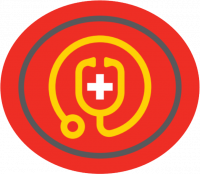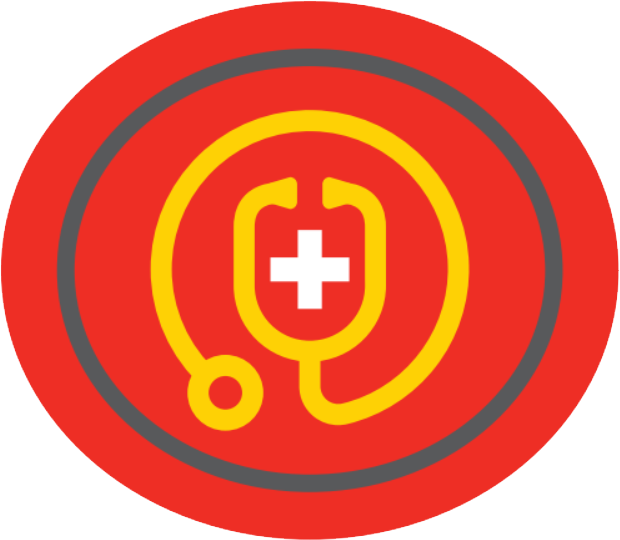Difference between revisions of "AY Honors/Health and Healing/Requirements/es"
| Line 12: | Line 12: | ||
<noinclude></noinclude><section end=req1b /></b> | <noinclude></noinclude><section end=req1b /></b> | ||
| − | :<b>c. <section begin=req1c /><noinclude> | + | :<b>c. <section begin=req1c /><noinclude></noinclude>Mateo 9:35 |
| − | </noinclude> | + | <noinclude></noinclude><section end=req1c /></b> |
| − | <noinclude | ||
| − | |||
:<b>d. <section begin=req1d /><noinclude><div class="mw-translate-fuzzy"> | :<b>d. <section begin=req1d /><noinclude><div class="mw-translate-fuzzy"> | ||
Revision as of 23:21, 27 March 2024
Nivel de destreza
2
Año
1928
Version
12.02.2026
Autoridad de aprobación
División Norteamericana
1. ¿Cuál fue la misión principal de Jesús en la tierra además de enseñar el Evangelio? Elegir dos versículos, leerlos y compartir sus hallazgos:
- a. Mateo 4:23 y 24
- b. Mateo 8:16 y 17
- c. Mateo 9:35
- d.
¿Por qué eligió su profesión?
- e.
¿Qué educación es necesaria para entrar en su profesión?
- f.
Después de la educación, ¿qué cantidad de tiempo se tarda en ser certificado o competente en su campo?
¿Qué parte de su trabajo le gusta más? ¿Cuál menos?
- a.
¿Qué días de la semana y cuántas horas por día trabaja usted en su trabajo?
- b.
¿Qué adelanto está disponible en su campo de trabajo?
3.
¿Qué curso de estudio en la universidad complementaría su profesión?
4.
¿Cuáles son algunas escuelas locales que ofrecen la formación en su profesión?
- a.
Realizar una de las siguientes actividades:
- b.
Ser un voluntario en un hospital o centro médico.
- c.
Visitar un médico o dentista y hacer lo siguiente:
5.
Ir a una visita de una enfermera que va a un hogar y hacer lo siguiente:
- a.
Visitar el departamento de pacientes externos de un hospital, como terapia física, rayos-X, laboratorio, etc. Hacer lo siguiente:
- b.
- c.
Observar las zonas de operaciones, como las oficinas de la empresa, el laboratorio, salas de exámenes, sala de rayos-X, etc.
- d.
Obtener una charla introductoria de los equipos utilizados en dichos lugares.
- e.
Conocer los pasos que da el paciente cuando visita uno de estos lugares desde la sala de espera hasta el momento en que se retira.
6.
Aprender la forma en que el médico hace un examen y toma la historia del paciente para el diagnóstico.
7.
Aprender los pasos de una visita a una casa con una enfermera desde cuando se encuentra con el paciente hasta cuando informa al médico.
8.
Observar la enfermera tomando los signos vitales.
- a.
Observar la enfermera dando instrucciones y medicamentos.
- b.
Observar las zonas de trabajo en el departamento
- c.
Obtener una charla introductoria de los equipos utilizados en el departamento y cómo funciona.
- d.
Conocer los pasos que toma un paciente cuando visita al departamento.
- e.
¿Cuántas personas se necesitan en el departamento?
- f.
¿Funciona el departamento por la noche?
- g.
Affiliated Fields
- h.
Non-Clinical
- i.
Research
9.
From the list in the previous requirement, select one health career that caught your attention that you could see yourself pursuing. Share with your group why you selected that particular option.
10.
Complete one of the following personal interviews.
- a.
Interview at least one person who works in a health career. Ask the following questions and write down your answers to share later with your class/instructor (feel free to add your own questions):
- Why did you choose your profession?
- What education is necessary to enter your profession?
- After education, what amount of time does it take to become certified or proficient in your field?
- What part of your job do you like the best? The least?
- What day of the week and hours per day do you work at your job?
- What opportunities to grow are available in your field?
- What advice would you give me as I explore whether a career in health care is right for me?
- b.
Attend a health career expo and visit several stations. Spend at least five minutes interviewing each health professional at each station you visit.
11.
Complete one of the following group activities:
- a.
Visit a local health care-related office in your community. Contact a health care professional in your church or community who can help facilitate the visit. Some examples can include:
- Medical office (to observe doctors, family nurse practitioners, nurses, nurse techs, etc.)
- Hospital (to tour the facilities and get a better sense of the work environment, areas, and more)
- Dental office (to observe dentist, dental hygienist, etc.)
- Laboratory (to observe medical technologist, phlebotomist, etc.
- Radiology office (to observe radiologist, radiology tech, etc.)
- Physical therapy office (to observe physical therapist, occupational therapist, tech, etc.)
- Optometrist office (to observe optometrist, techs, etc.)
- Other options can include research lab, skills lab (i.e. nursing and other professions) and others based on what’s available in your community.
- b.
Have a health professional come and make a presentation about what it’s like to work in health care. As part of their presentation, they can share a tour of the facility through photos and videos and answer questions about what a day in their life is like. Be prepared to ask some questions of your own and take notes.
12.
Develop and play a trivia-style game (such as flash cards, game show, job matching, etc.) to demonstrate what you have learned in this honor.


